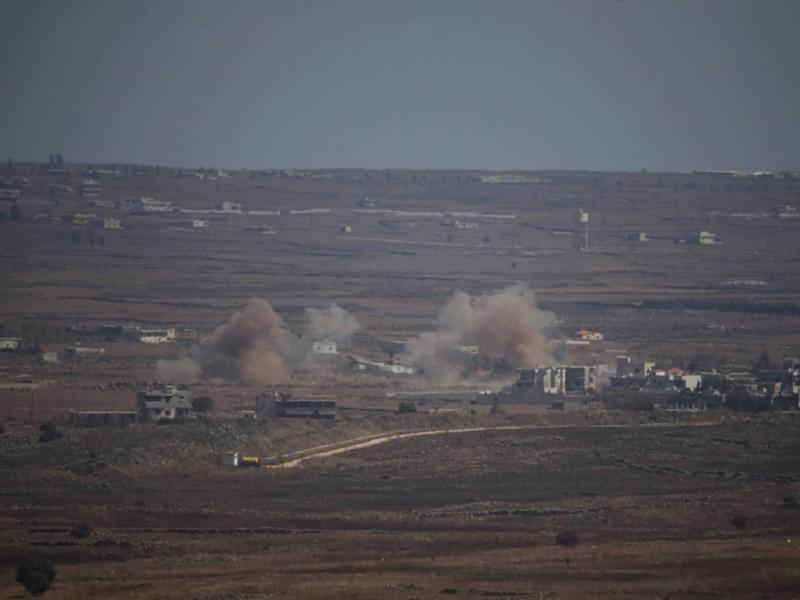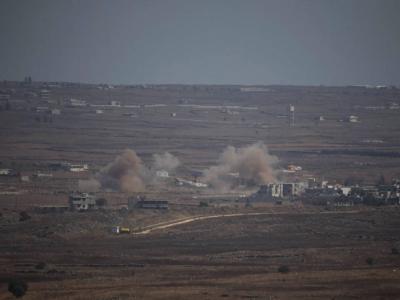A political source revealed to "Al-Jumhuriya" that Hezbollah's strong response to the assassination of its military leader, Fouad Shukr, in the southern suburbs has become imminent, after mediators exhausted efforts to reach an agreement on a ceasefire and prisoner exchange in Gaza. The source explained that "the party refrained from executing the planned strike in the past period to allow mediators to achieve a settlement based on the initiative of U.S. President Joe Biden, as well as proposals from Egypt and Qatar. However, the obstinacy of Israeli Prime Minister Benjamin Netanyahu and his insistence on complicating negotiations by drowning them in unacceptable conditions prevented the success of last week's Doha talks and will eliminate the last chance for a ceasefire and the return of prisoners during the upcoming Cairo talks."
The source noted that "it is certain that the party will also respond in the coming hours to the Israeli airstrike that targeted one of the weapon depots belonging to the party in Baalbek significantly, but within the new rules of engagement in place by both sides."
In the same context, an Israeli Prime Minister's office statement on Monday did not hide the exposure of U.S. positions wavering between pressure on Netanyahu's obstinacy and adopting his impossible conditions. The statement added that "the Prime Minister reaffirmed Israel's commitment to the current U.S. proposal regarding the release of hostages, which takes into consideration Israel's security needs, which he insists on strongly." This indicates a stagnation in negotiations and lowers the chances of achieving a settlement in the Cairo meeting.
A prominent source revealed to "Al-Jumhuriya" that there is a clear circumvention of Biden's original initiative since the day after it was proposed, as the written paper detailing the U.S. President's initiative, relayed to those involved in negotiations from combatants and mediators, contained complicated clauses that Netanyahu added with further conditions rejected by Hamas.
### Demands Rejected by Israel and Hamas
Israel insists on maintaining a permanent military presence in strategic areas such as the Philadelphia and Netzarim corridors in Gaza, which it considers necessary to prevent arms smuggling and maintain control. It also pressures to expel Palestinian leadership outside Gaza and release more hostages during the first phase without committing to a ceasefire in the second phase. These demands, especially the military presence in Gaza, were met with firm rejection from Hamas.
On the other hand, Hamas demands the complete withdrawal of Israeli forces from Gaza and the lifting of the blockade that has lasted for more than a decade. Hamas also insists on a full ceasefire that includes ending Israeli military operations in the West Bank and East Jerusalem. Israel rejected these demands, considering that they would jeopardize its national security and allow Hamas to rearm and reorganize.
### Blinken's Objectives in the Middle East
Anthony Blinken's recent visit to the Middle East is part of an intensive diplomatic effort led by the Biden administration to ensure a ceasefire between Israel and Hamas. Blinken described the current negotiations as "a critical moment," perhaps the last opportunity to achieve a ceasefire, secure the release of hostages, and pave the way for lasting peace and security. His objectives include bridging gaps between the conflicting parties, ensuring humanitarian aid to Gaza, and preventing an escalation of the conflict, which could attract regional powers such as Iran and Hezbollah.
The United States views these negotiations as essential not only to stop the ongoing violence but also for broader stability in the Middle East, which remains a priority for U.S. national security.
### Expectations for the Cairo Negotiations
The upcoming talks in Cairo on Wednesday, including Egypt, Qatar, the United States, and Israel, are considered the "final phase negotiations" aimed at concluding a ceasefire agreement. These talks are expected to focus on the specific terms for a ceasefire, the status of the Israeli military presence in Gaza, and mechanisms for monitoring and enforcing any agreement reached. However, the road to an agreement remains fraught with challenges. Both Israel and Hamas have expressed skepticism about the other party's commitment to a ceasefire deal, and there are significant concerns about whether either side is willing to make the necessary concessions. Additionally, the influence of hardline factions within both Israel and Hamas could undermine the negotiations at any stage.




